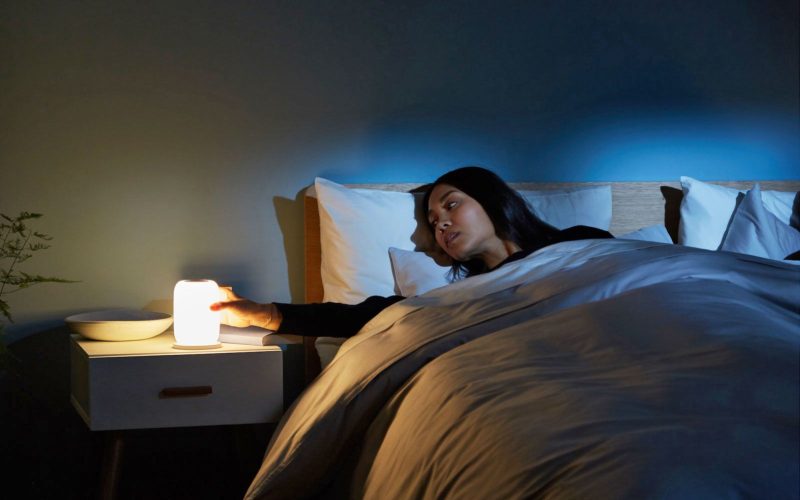Introduction
In the dead of night, when the world around you is quiet and still, there’s nothing more frustrating than being kept awake by incessant itching. Nighttime itching can disrupt your sleep, leaving you feeling irritable and exhausted the next day. But what causes this frustrating phenomenon, and more importantly, how can you find relief? In this comprehensive guide, we’ll dive deep into the common causes of nighttime itching and explore effective solutions to help you reclaim a peaceful night’s sleep. Explore More About (Eye Twitching)
Understanding Nighttime Itching
Nighttime itching, also known as nocturnal pruritus, refers to the sensation of itchiness that occurs specifically during the night. It can affect various parts of the body, including the skin, scalp, and even the genitals. While occasional nighttime itching may not be cause for concern, persistent or severe itching can significantly impact your quality of life.

Common Causes of Nighttime Itching
1. Dry Skin
One of the most common culprits behind nighttime itching is dry skin. When the air is dry, especially during the winter months or in arid climates, the skin loses moisture, leading to itching and irritation. Areas commonly affected by dry skin itching include the legs, arms, and back.
2. Allergies
Allergies to certain substances, such as dust mites, pet dander, or pollen, can trigger nighttime itching. Exposure to allergens while you sleep can lead to inflammation and itching, particularly if you have sensitive skin or suffer from conditions like eczema or allergic dermatitis.
3. Skin Conditions
Various skin conditions, such as eczema, psoriasis, and dermatitis, can exacerbate nighttime itching. These conditions are characterized by inflammation, redness, and itchiness, which tend to worsen at night due to factors like increased blood flow to the skin and elevated stress levels.

4. Insect Bites
Insect bites, such as those from mosquitoes, bedbugs, or fleas, can cause intense itching, especially at night when these pests are most active. The saliva injected by insects during feeding can trigger an allergic reaction in some individuals, leading to persistent itching and discomfort.
5. Hormonal Changes
Hormonal fluctuations, particularly in women, can contribute to nighttime itching. Conditions such as menopause or pregnancy can alter hormone levels, leading to changes in skin texture and increased sensitivity, which may manifest as itching during the night.
6. Medications
Certain medications, including antihistamines, opioids, and antibiotics, can have side effects that include itching or skin irritation. If you notice an onset of nighttime itching after starting a new medication, consult your healthcare provider for guidance.
Effective Solutions for Nighttime Itching
Now that we’ve explored the common causes of nighttime itching, let’s discuss some effective solutions to help alleviate this bothersome symptom and promote a restful night’s sleep.
1. Moisturize Regularly
To combat dry skin and minimize nighttime itching, incorporate a regular moisturizing routine into your daily skincare regimen. Opt for fragrance-free, hypoallergenic moisturizers and apply them liberally to damp skin after bathing or showering.
2. Identify and Avoid Allergens
If allergies are contributing to your nighttime itching, take steps to identify and avoid potential triggers in your environment. Use allergen-proof bedding covers, vacuum regularly, and consider investing in an air purifier to minimize exposure to allergens while you sleep.
3. Manage Stress
Stress can exacerbate itching and disrupt sleep patterns, so it’s essential to practice stress-reduction techniques such as deep breathing, meditation, or yoga. Engaging in relaxation activities before bedtime can help calm your mind and body, promoting better sleep quality.

4. Seek Medical Advice
If home remedies fail to provide relief or if your nighttime itching is severe and persistent, don’t hesitate to seek medical advice. A dermatologist can evaluate your symptoms, identify underlying causes, and recommend appropriate treatment options, such as prescription medications or topical therapies.
5. Maintain a Healthy Lifestyle
Adopting a healthy lifestyle can also support overall skin health and reduce the likelihood of nighttime itching. Stay hydrated, eat a balanced diet rich in vitamins and minerals, and avoid excessive alcohol consumption and smoking, which can exacerbate skin irritation.
6. Practice Good Sleep Hygiene
Lastly, practicing good sleep hygiene can help minimize nighttime itching and promote restful sleep. Establish a consistent sleep schedule, create a comfortable sleep environment, and avoid stimulants like caffeine and electronic devices before bedtime.

Solutions for Nighttime Itching
| Solution | Description |
|---|---|
| Moisturize Regularly | Apply fragrance-free, hypoallergenic moisturizers liberally to damp skin after bathing or showering. |
| Identify and Avoid Allergens | Use allergen-proof bedding covers, vacuum regularly, and invest in an air purifier to minimize exposure to allergens while sleeping. |
| Manage Stress | Practice stress-reduction techniques such as deep breathing, meditation, or yoga to calm the mind and body before bedtime. |
| Seek Medical Advice | Consult a dermatologist if home remedies fail to provide relief or if nighttime itching persists and becomes severe. |
| Maintain a Healthy Lifestyle | Stay hydrated, eat a balanced diet rich in vitamins and minerals, and avoid alcohol and smoking to support overall skin health. |
| Practice Good Sleep Hygiene | Establish a consistent sleep schedule, create a comfortable sleep environment, and avoid stimulants before bedtime for better sleep. |
By implementing these strategies and addressing the underlying causes of itching, you can take proactive steps to improve your sleep quality and wake up feeling refreshed and rejuvenated.
Conclusion
In conclusion, itching can be a frustrating and disruptive experience, but it’s essential to understand that relief is possible. By identifying the underlying causes of your itching and implementing targeted solutions, you can minimize discomfort and enjoy a peaceful night’s sleep. Remember to prioritize self-care, seek medical advice when needed, and make adjustments to your lifestyle to support optimal skin health and overall well-being. With persistence and patience, you can overcome itching and reclaim your nights for rest and relaxation.












